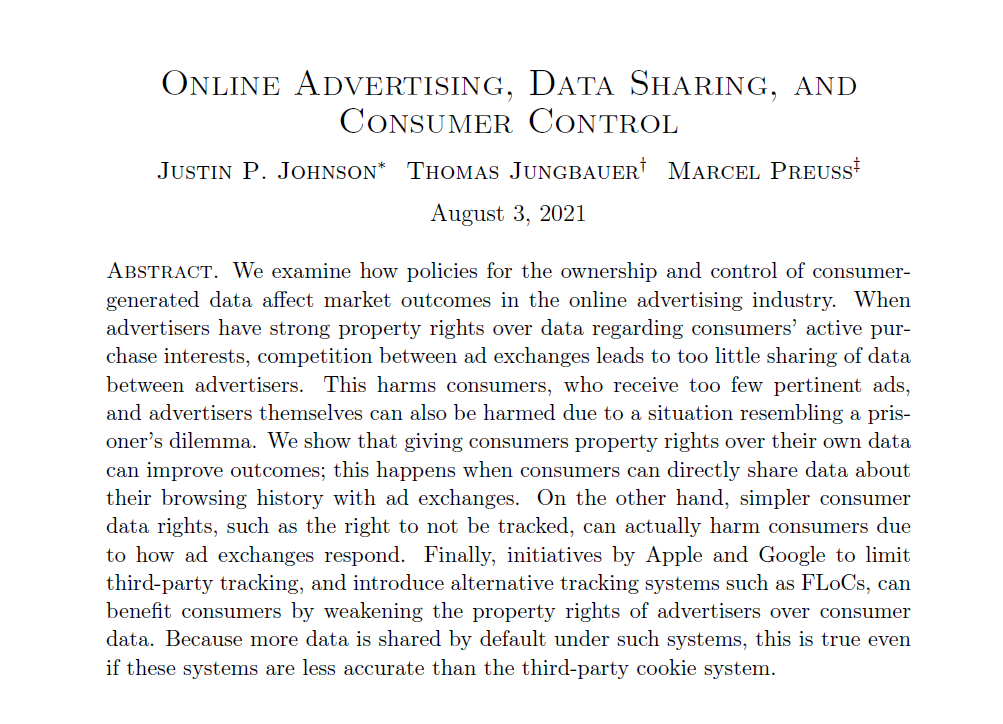
When advertisers share consumer-relevant data (e.g., that they have visited the advertiser’s website) with ad exchanges, the facilitators of targeting consumers across the web and online advertisement auctions, these ad exchanges do not offer to share this information with other rival advertisers in the same product category. This is even true if all parties in the market (ad exchanges, advertisers, consumers, publishers) were be better off in case more information was shared.
We identify the strong property rights of advertisers (website owners) as the culprit of this undersharing of information (ad exchanges cater to advertisers with restrictive data sharing policies), and show that small tweaks such as endowing consumers with easier ways not to be tracked can even worsen that situation. Instead what it takes is a system that weakens advertisers’ property rights over consumer-generated information. When consumers are for example allowed to directly share purchase intent in a product category with ad exchanges, advertisers in equilibrium share more information themselves enabling very efficient “cross-targeting” of consumers. We show that even highly criticized initiatives such as those by Google and Apple to abandon third-party cookies may improve consumer welfare by altering the current system.
